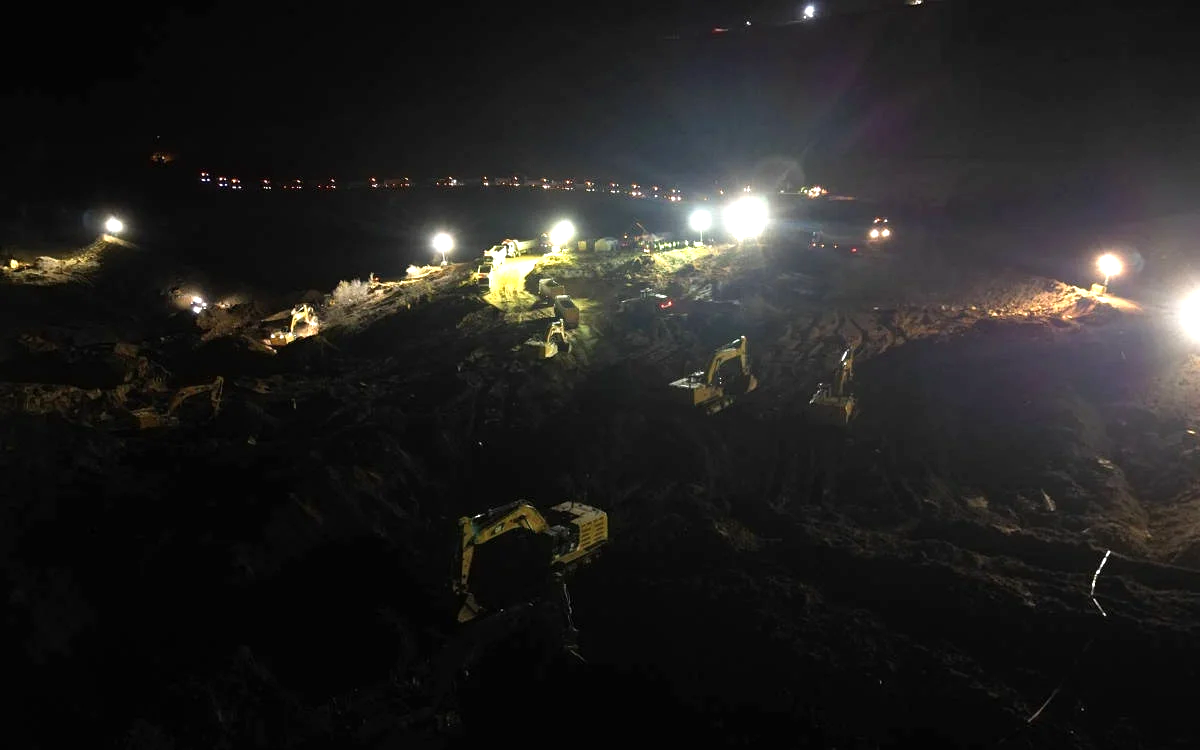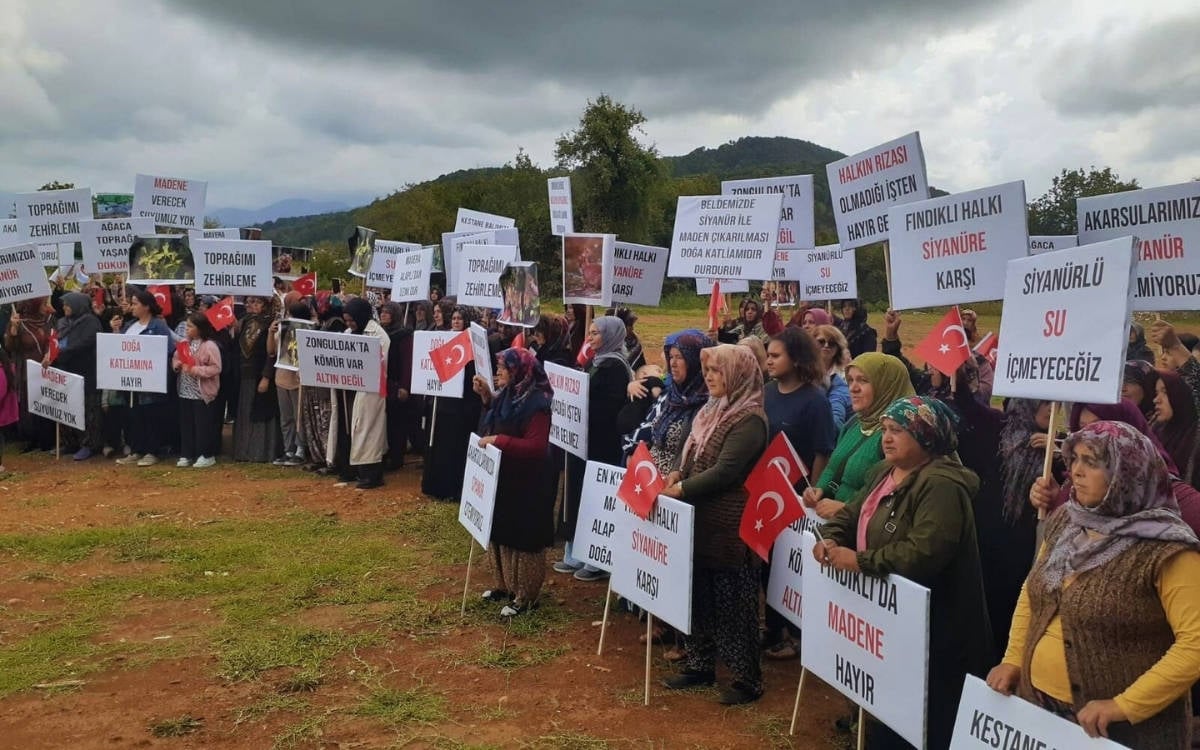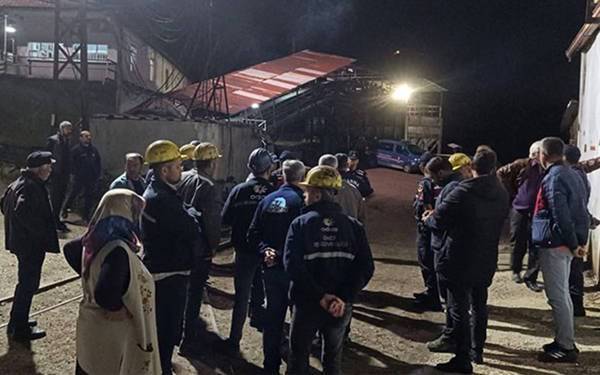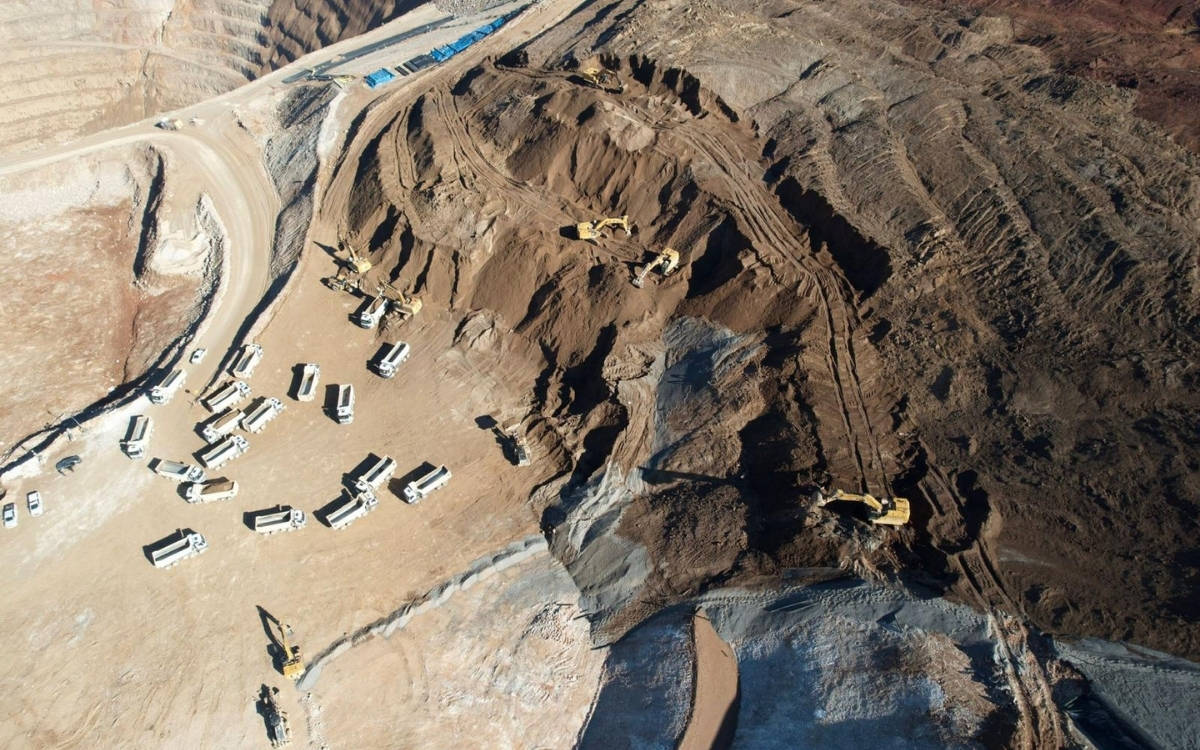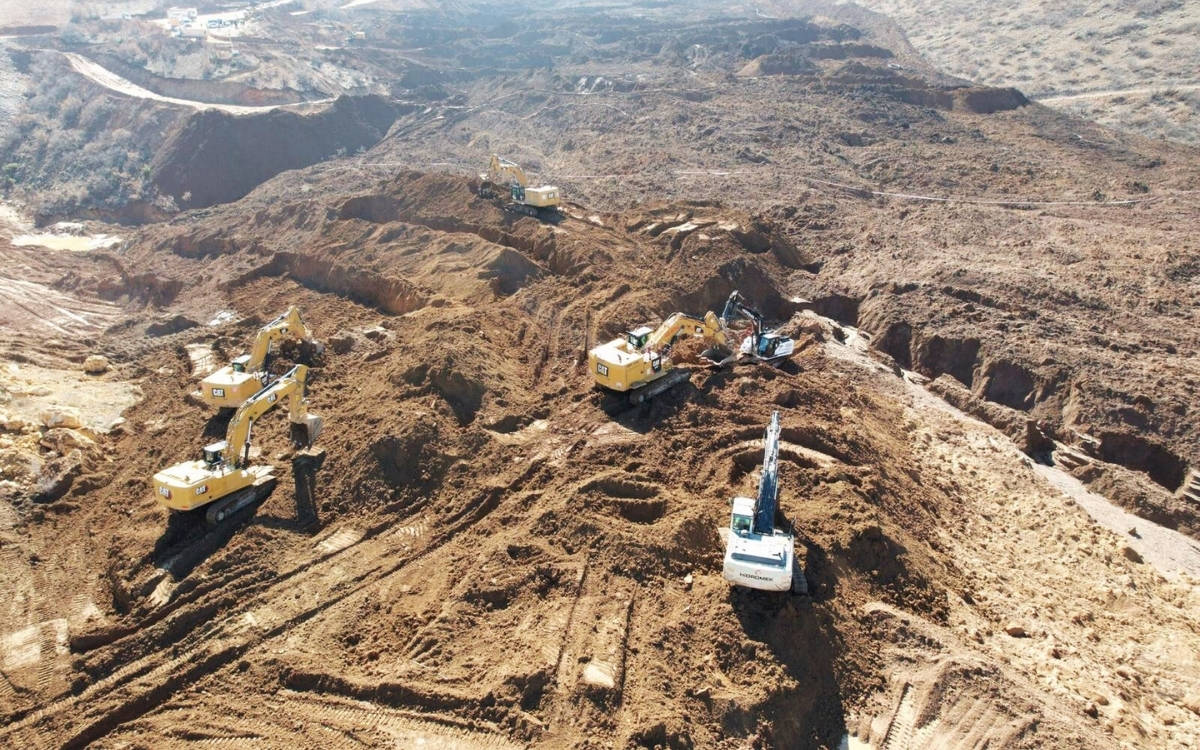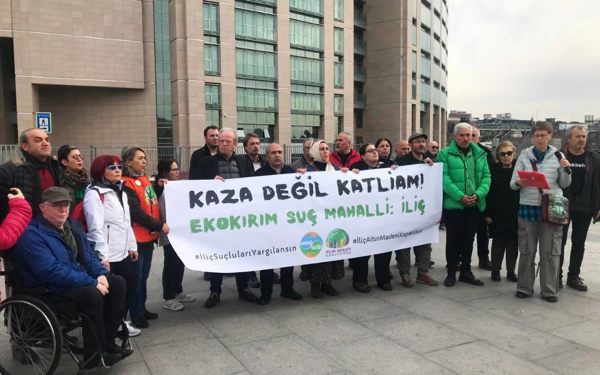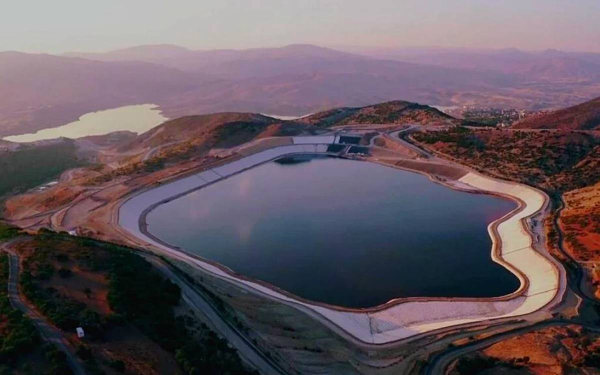Through a legal process initiated by the 'Bergama Movement' in the 1990s, it was determined that gold mining was not in the public interest. In the subsequent counter-campaign, Bergama protesters were accused of acting against the country's interests.
As the process continued, gold mining, causing significant environmental damage and harboring significant risks, became synonymous with economic gain and national interests. A series of legal amendments were made prioritizing gold mining over the natural environment and rural life dependent on it.
Since the late 1990s, the political authorities' attitude of removing any obstacles against mining companies paved the way for the tragedy in Iliç. The main cause of the disaster was the unscrupulousness and lawlessness that shaped the field of gold and gold mining from that date onwards.
'No public interest in gold mining'
The disregard for rules that opened the way for gold mining was initiated against the achievements of the social movement known as the 'Bergama Movement.'
The Bergama Movement emerged in the early 1990s when local residents mobilized against the gold mining activities initiated by a multinational company in Bergama, İzmir. The movement effectively brought to the public agenda the environmental damages caused by gold mining, which used heavy chemicals such as cyanide.
More importantly, through court decisions stating that there was 'no public interest in gold mining using cyanide,' it successfully got the 'environmental' permits for the mine canceled in 1998. The ruling power of that time, however, persistently proceeded to grant operating permits. But in 2001, these permits were also blocked through the legal struggle led by the Bergama Movement.
If Turkey were truly a rule-of-law state and adhered to judicial decisions, the inherently wild adventure of gold mining might have ended before it even began. Unfortunately, that was not the case.
Legitimizing gold mining
The legal gains of the Bergama Movement were overcome by a 'counter-campaign' led by various figures such as politicians, bureaucrats, academics, and journalists. Despite court decisions, speculative and unfounded allegations were made about both gold mining and Bergama protesters to pave the way for gold mining operations.
Claims were made that Turkey had vast gold reserves, gold mining was crucial for the country's economy, even claiming that it could rescue the country from an economic crisis. Alongside these claims, baseless allegations were circulated through newspaper articles, op-eds, TV programs, and a freely distributed book, suggesting that the Bergama Movement served foreign powers, was organized by German foundations, and some protesters were spying on behalf of Germany.
Gold mining was equated with national interests
Through this counter-campaign against the Bergama Movement, gold mining was associated with economic gain and national interests. Meanwhile, the environmental problems and risks voiced by Bergama protesters were presented as a cover for their 'hidden' motives. Thus, the close relationship between gold mining and environmental destruction was diverted from public attention and removed from the public agenda.
These allegations set the groundwork for the reopening of the mine that had been closed by a court decision, with the government's decision. Additionally, practices such as the harsh suppression of protests by law enforcement and the initiation of various lawsuits against Bergama protesters were legitimized. Although protesters were later acquitted in all these cases, the Bergama Movement continued to be associated with German foundations for a long time.
Legislation no longer exists
The reckless attitude adopted to open the way for gold mining evolved into lawlessness during the AKP government periods. In this period, a series of legal changes were made, prioritizing gold mining over the natural environment and rural life dependent on it.
This effort, which began with the enactment of a new mining law (Law No. 5177) in 2004 and various amendments to various laws related to mining (such as the Cultural and Natural Heritage Protection Law, Environmental Law, Forestry Law, and National Parks Law), continued with a series of legal changes in the following years.
With all these changes, legislation to protect the natural environment and the social life connected to it against the inevitable destruction caused by gold mining has almost disappeared. Thus, thousands of mining licenses covering many areas, including agricultural lands, pastures, forests, and areas near rivers, were issued.
Open-pit and heap leach methods were also licensed for gold mining. Some of these licenses, specifically in Uşak Eşme, Ordu Fatsa, and Erzincan İliç, covered mines that caused even more intense environmental destruction using the 'open-pit' and 'heap leach' methods. The mine in İliç, along with the Kışladağ mine in Eşme, was one of the first mines opened after gaining control over the Bergama Movement and clearing the way for gold mining.
This area, where construction began in 2009 and mining operations started in 2010, contains the second-largest reserve after the mine in Eşme. Similar to Eşme, the mining area in İliç completely wiped out a village, Çöpler Köyü. The mine expanded gradually by increasing its capacity several times. Another reason for the unregulated growth of the mine in İliç was the indifference of the local population.
Local residents were convinced
What sets İliç apart from other regions, such as Eşme and Fatsa, sharing a similar fate, is the almost complete lack of resistance from the local population against both the initiation and expansion of mining activities. Before the mining company even started its operations, some of the local population was convinced through activities labeled as 'social responsibility.'
These activities included organizing trips to the USA for the village headmen, providing employment opportunities in the mine for the local population, and informing the community about the economic contributions of gold mining to the region, along with offering some infrastructure services.
The most directly affected by the mine were the residents of Çöpler Köyü. Despite some residents not being pleased with losing their pastures, the end of animal husbandry, and even the relocation of graves due to the mine area, they remained silent.
"We are all drowning together"
Some villagers' dissatisfaction and distrust towards the mining company began with the environmental destruction they experienced along with the mine's operation. One villager expressed this by saying, "They ruined us. They said they would afforest and such. We are naive, uneducated. We got into something, and we are all drowning now. I don't accept it now, but they say you signed here, it's over. We burned ourselves by signing everything. We are illiterate; what do we know? They deceived us. I had 500 sheep, and I had an income of 150 billion annually."
Economic expectations
The revised 'urgent expropriation law,' used in favor of companies in such projects, also played a role in villagers selling their lands. One villager pointed out this situation, saying, "When the news of expropriation came, people saw that the land was going for 2,000 liras, and the company was offering 10,000 liras; they sold it immediately."
On the other hand, the İliç district, located six kilometers away from the mining area, welcomed mining positively due to economic expectations. The local population's indifference led to non-compliance with even the existing loose regulations. The company easily obtained the Environmental Impact Assessment (ÇED) approvals necessary for capacity expansion. Even for the expansion of the open-pit, obtaining a ÇED approval was not deemed necessary.
Consequences of lawlessness
As a result, in this 'lawless' environment created in favor of mining companies since the 1990s, the mining company acted entirely in its own interests, moving without control. The accident that occurred in 2022 due to the explosion of a pipe carrying cyanide in the mine was one of the first results of this lawlessness and lack of control. However, even such a accident with extremely dangerous consequences did not result in an increase in rules and control over mining companies in general or specific measures for the İliç mine.
The political authorities' attitude of removing any obstacles in front of mining companies started with the refusal to recognize court decisions from the late 1990s to 2002. In the following years, this approach continued with frequent changes in legislation. These years witnessed an increase in favoritism and authoritarianism, deepening with each passing day. Ultimately, the disaster in İliç was a direct result of this lawlessness and lack of control. (HÖ/TY/VK)
This article has been published in collaboration with İklim Masası and bianet.
İklim Masası is a news service that aims to disseminate reliable information about the climate crisis to the public. Its authors are scientists with expertise in the subjects they cover.






